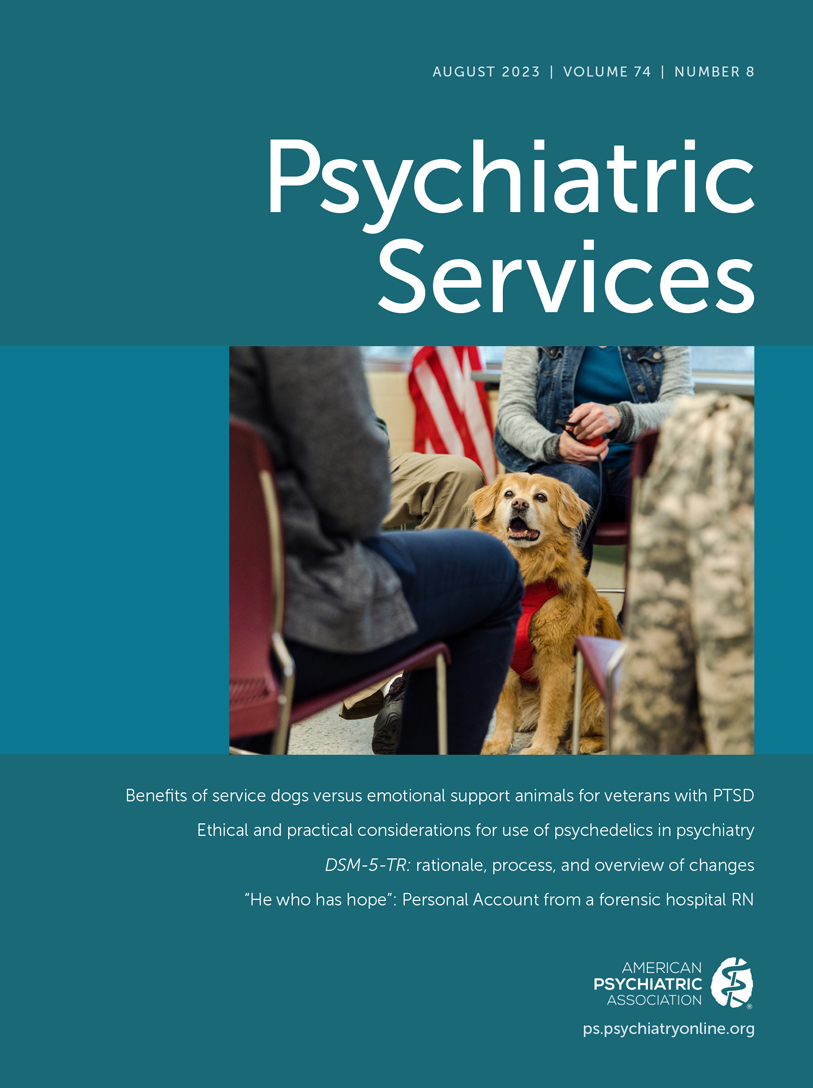Effect of Integrating Patient-Generated Digital Data Into Mental Health Therapy: A Randomized Controlled Trial
Abstract
Objective:
The authors sought to determine whether providing summaries of patients’ social media and other digital data to patients and their clinicians improves patients’ health-related quality of life (HRQoL) measured by the RAND 36-Item Short Form Health Survey (SF-36).
Methods:
The authors randomly assigned 115 adults receiving outpatient mental health therapy to usual care or to periodic sharing of summaries of their digital data with their clinician providing psychosocial therapy. The study was conducted October 2020–December 2021.
Results:
Patients’ mean±SD age was 31.3±10.5 years, and 82% were women. At 60 days after enrollment, no statistically significant change was detected in SF-36 scores for patients randomly allocated to the intervention (mean difference=−0.39, 95% CI=−4.17, 3.39) or to usual care (mean difference=−1.98, 95% CI=−5.74, 1.77), and no significant between-arm difference was observed (between-arm difference=1.60, 95% CI=−3.67, 6.86).
Conclusions:
Collecting and summarizing digital data for use in mental health treatment was feasible for patients but did not significantly improve their HRQoL or other measures of mental health.
Access content
To read the fulltext, please use one of the options below to sign in or purchase access.- Personal login
- Institutional Login
- Sign in via OpenAthens
- Register for access
-
Please login/register if you wish to pair your device and check access availability.
Not a subscriber?
PsychiatryOnline subscription options offer access to the DSM-5 library, books, journals, CME, and patient resources. This all-in-one virtual library provides psychiatrists and mental health professionals with key resources for diagnosis, treatment, research, and professional development.
Need more help? PsychiatryOnline Customer Service may be reached by emailing [email protected] or by calling 800-368-5777 (in the U.S.) or 703-907-7322 (outside the U.S.).



